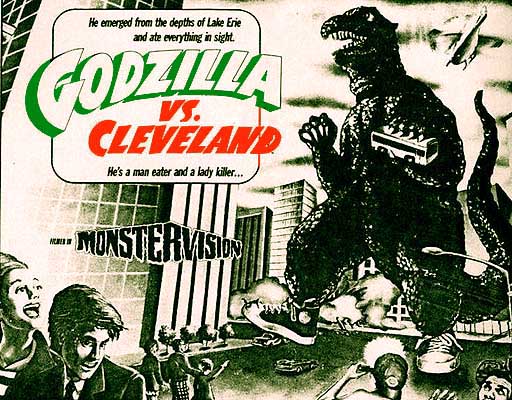Except this is no joke, and it’s not a Godzilla monster.
It’s the Asian
Carp.
The Plain Dealer editorial appears here, and below are some
extracts. Mark your calendar for Thursday, Jan. 16. The
Army Corps of Engineers will host a public meeting at the Cleveland Public
Library, 325 Superior Avenue, from 4 p.m. to 7 p.m.
The
carp cometh. (Marlin Levison, The Star Tribune)
The pending carpocalypse of the Great Lakes
The U.S. Army Corps of Engineers -- the same folks who
have come up with endless ways to delay action on the threatened invasion of
Asian carp into the Great Lakes -- seem determined to institutionalize
that failure with a new report that obscures the need for immediate action
beneath an avalanche of "risk matrix" and "cost
methodology."
But you can stop the Corps from turning the Great Lakes into a
corpse.
Circle Thursday, Jan. 16,
on the calendar. The Corps will host a public meeting at the Cleveland Public
Library, 325 Superior Avenue, from 4 p.m. to 7 p.m.
The topic: Their Great Lakes and Mississippi River Interbasin Study,
a wishy-washy "We could do this, we could do
that" strategy that skims over the half-measures that have
allowed the silver and bighead carp -- the most serious threats these
20,000-year-old liquid assets have faced -- to gain a finhold in the largest
freshwater ecosystem on the continent.
The five glacial lakes provide drinking water to 30 million
people and float a $7.5 billion commercial fishing industry and 800,000 jobs.
Then there is the tourism. In Ohio alone, Lake Erie recreation
and tourism net an estimated $11.5 billion annually and support
more than 117,000 jobs, according to state statistics.
And yet, the Corps apparently could care
less about what happens in Cleveland or Milwaukee or Buffalo --
especially if it means upsetting President Barack Obama's Chicago shipping
industry cronies.
The study --
which took seven years, millions of dollars and a bipartisan boot-in-the-butt
by Congress to produce -- offers eight options, beginning with the
laughable suggestion that the Corps continues its current do-nothing tactic by
relying on the electric barriers in the Chicago Sanitary and Carp, er, Ship
Canal that its own research has proven ineffective.
. . .
And then -- buried near the bottom [of the study] -- is the only
obvious solution to stop the carp as well as other invasive species
from gutting the Great Lakes: Hydrological
separation of the Great Lakes and Mississippi River basins.
Cost: $18.3 billion.
And worth every penny.
Great Lake governors, local, state and federal elected
officials, scientists, the Alliance for the Great Lakes, Healing Our
Waters-Great Lakes Coalition and the Ohio Environmental Council all endorse
that plan.
Now it time to make your voice heard. Tell the Corps why the Great Lakes mean so much to you. Personalize the relationship.
Attend the Jan. 16 meeting at the Cleveland Public Library. Then
ask the Corps officials and other officials who will be present the tough
questions:
1. Hydrological separation is the only strategy that meets the
congressional mandate to protect the Great Lakes and it's
expensive, yet so is doing nothing. Are our lakefront elected representatives
including Reps. Marcy Kaptur and David Joyce and Sens. Sherrod Brown and Rob
Portman prepared to fight for this money? What about Ohio Gov. John
Kasich? Spending hundreds of thousands of federal dollars on the Great
Lakes Initiative annually will be a wasted investment if the lakes' fisheries
and recreational attractions are laid waste by predatory carp.
2. Given that the Corps' own research
confirms that the electric barriers are ineffective and that the
physical separation of the two water systems will require extensive and
time-consuming work, can Corps officials describe in detail the
technologies and any physical barriers they are prepared to implement quickly to prevent the
carp from entering the Great Lakes before the watersheds are separated?
3. Considering the urgency of the threat, how soon will Corps
officials pledge to have a plan in place to separate the two
watersheds? When will the actual separation work begin?
THE MEETING: Thursday, Jan.
16 / Cleveland Public Library, 325 Superior Avenue / 4 p.m. to 7 p.m.









No comments:
Post a Comment
Thanks For Commenting